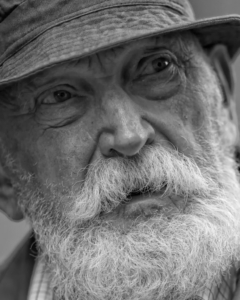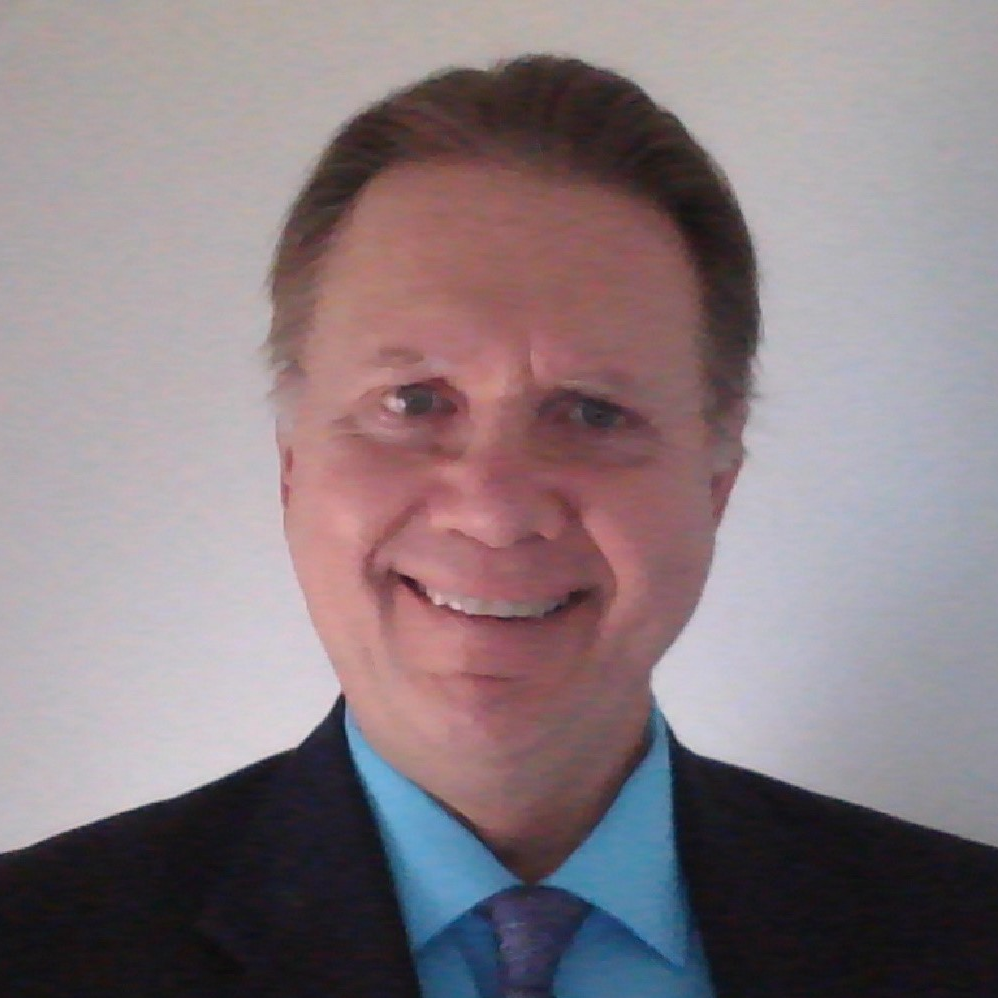Old White Men: Protecting the Rim for Steady-State Diversity
by Brian Czech
I’m an old guy. Not ancient, perhaps, but my 61-year old knees alone would put me in the lower decile of…let’s say freshness. Why, my best days are so far back, you’d need a rearview mirror from the Giant Magellan Telescope to spot one!

The Giant Magellan Telescope: Massive mirrors reflecting through time. (CC BY-NC-SA 2.0, Observatorio Las Campanas)
As if that weren’t bad enough, I’m a white guy. I might feel black and blue sometimes from fighting the forces of GDP growth, but when the Census Bureau comes around, I’ve got no choice but to enter “white.” With a name like Czech, I won’t be getting away with racial shenanigans, either.
Now, as the president and executive director of CASSE, I get a certain amount of flak for not having younger, nonwhites on my board of directors. I get it, too. I truly believe in diversity; probably more than most. (More on that later.)
On the other hand, I say, “Walk a mile in my orthotics.” Diversity is important, but CASSE isn’t the U.S. Department of Education, Facebook, or even Greenpeace. While tiny CASSE has a big-picture, long-term mission, the niche we fill is very specific, and requires an equally specific type of expertise.
I anticipate the argument: “You don’t understand what a board of directors is, Czech. You don’t need your board to be experts in steady-state economics. What you really need are board members who know how to network, raise funds, and help govern. And you definitely need diversity to demonstrate to the world of philanthropy that you’re unbiased, democratic, and socially aware.”
While I see the logic in these points about networking, fundraising, governance, and diversity—and think about them frequently—there’s a counterargument as well.
Broad but Specific?
How, you might ask, can a big-picture, long-term mission—such as sustainability—be paired with a highly specific niche? Well for starters, by having an iconoclastic vision of what it takes to accomplish that mission.
Henry David Thoreau wrote, “There are a thousand hacking at the branches of evil to one who is striking at the root.” By now there are thousands of “sustainability” programs scattered across the landscape. How many of them even utter the phrase “steady state economy?”
I still recall the first time I heard the Thoreau quote. And no, you whippersnappers, it wasn’t from Thoreau himself! No, a fellow came up to me at a conference and said my talk (on the steady state economy as the prerequisite for biodiversity conservation) reminded him of a quote from Thoreau, and proceeded to channel.
The quote immediately resonated, as I (like my new acquaintance) had seen “a thousand hacking at the branches” in academia, corporations, governments, and nonprofit organizations. Hacking away, for example, at input:output analysis, the recycling of carpet, the management of ducks, or the disposal of unused paint, respectively.
Hacking away at such issues is not a bad thing, but it’s not striking at the root either—the bloating GDP that the nasty branches stem from. And it is a bad thing when the university, corporation, agency, or NGO couples it with the message that “there is no conflict between growing the economy and protecting the environment.” Far too many have issued such win-win rhetoric, shortened into phrases such as “green growth,” “smart growth,” and “sustainable growth.” Conversely, almost none of the hackers have pushed for a steady state economy.
Why? Frankly the reasons are legion, and most can be labeled with the broad brush of “political economy.” But let’s stick here to the theme of age. Most folks simply don’t live long enough to assemble all the puzzle pieces. In their limited time on Earth, they’re stuck hacking at one or two of the branches, raising a family, perhaps practicing a faith, being a citizen, pursuing a hobby, and trying to have a little rest and relaxation. That doesn’t bring them into a mastery of ecological macroeconomics, much less leadership in steady statesmanship.
Age and Big-Picture, Long-Term Studies
Whatever happened to the conventional wisdom of age bringing wisdom? Or at least knowledge? And a lot of knowledge is required for a solid understanding of sustainability. Think not? Well, I usually don’t like to quote Donald Rumsfeld, but his bit about “not knowing what we don’t know” is apropos in the sustainability business.
For a scholar or citizen to really get it about limits to growth, the need for a steady state economy, and the prospects for steady statesmanship, considerable chunks of knowledge from each of the following fields are required:
- Physics
- Ecology
- Anthropology
- Macroeconomics
- Political science
- Economic history
- Technological progress
- Social psychology
- Public policy
- International affairs
I just know there are readers champing at the bit to add such entries as biophysical economics, energy studies, and complexity theory, too. And all that’s merely for an understanding of the sustainability challenge, yet still a far cry from effectiveness in the politics and diplomacy of steady statesmanship.
Furthermore, in some of these fields, it doesn’t suffice to act like an indiscriminate vacuum cleaner, sucking up everything you read and forcing it down your paradigm pipe. The best example is macroeconomics, given that the textbooks are still written by neoclassical economists who—due to a lack of knowledge in the other fields—provide students with a shortsighted model of perpetual growth. It takes wide-ranging study tempered by decades of witnessing and studying how the world works to pick and choose the valid concepts from the smorgasbord of notions put forth in the soft “sciences” such as economics and political economy.

When you think of a wise man, is the beard not grey? (CC BY-NC 2.0, Fouquier)
It’s true that kids like Greta Thunberg need only 16 years of life to chastise the United Nations for “fairy tales of eternal economic growth.” Thunberg had the confidence of innocence on her side; her mind hadn’t been exposed to a corrupting curriculum in neoclassical economics, where instructors would have relentlessly plied their stovepipe “theories” of endogenous technological progress and dematerializing GDP growth. The instructors, not the Gretas, would have “Nobel” (but not actually Nobel) Prize-winning economists on their side.
This phenomenon helps to explain why CASSE signatories—those who have signed the CASSE position on economic growth—tend to be significantly younger or older than the middle-aged mass of humanity. The young thinkers haven’t lost their intellectual innocence, or the common sense they’ve acquired to date. Meanwhile, the oldsters have seen through the wicked ways of the world and finally returned to their common senses. They’ve discovered that the no-limits curriculum they were force-fed by instructors and politicians was indeed nothing more than a fairy tale, or an outright lie perpetrated by Dark Money.
Furthermore, the oldsters were led to CASSE because most of the other NGOs—with diverse young boards of economists, lawyers, and corporate officers—were still in fairy-tale land, pumping out the win-win rhetoric of “green growth.”
Yet who among these young’uns and oldsters has the chops and the toolkit to debate—on stage, in the boardroom, or at the government roundtable—the neoclassical growth economist about limits to growth? Age alone can strip a person of a lot of green-growth foolishness, but that doesn’t necessarily leave a master of ecological macroeconomics. No, I posit that it takes a lot of academic study, as well as real-world observation, to become an effective steady statesman (meaning of course a man or a woman).
A lot of academic study takes a lot of years. That’s why old age is practically a prerequisite for top-notch sustainability leadership.
On Whiteness
I imagine there are oldsters out there thinking, “Don’t do it you idiot! Quit while you’re ahead!” They’re probably in their 80s, approaching peak wisdom. Compared to them at least, I have the excuse of foolish youth, crappy knees notwithstanding.
Of course there are (at least) two types of foolishness: foolishness on the facts, and foolishness in deciding whether to discuss the facts. In the woke age of hyperactive political correctness, it’s hard to discuss anything about racial differences or propensities.

The “Greek Freak” dominates the court. (CC BY 2.0, Jose Garcia)
Now watch this and ask yourself if there’s a white guy on Earth who can replicate it. The “Greek Freak” is one of a kind, no? But in reality, Giannis Antetokounmpo is as “Greek” as I am Brazilian. He was born in Athens to Nigerian immigrants.
As with the Thunberg example, I don’t believe in building a generalized argument from a sample size of one, but the Greek Freak is far from the only Nigerian “who got game.” Blacks comprise approximately 74 percent of NBA players; whites less than 20 percent. What’s up with that?
It’s called racial diversity! And it’s beautiful to behold, isn’t it?
I for one have a deep appreciation of every single race, sub-race, ethnic group, and culture on Earth. In fact, I love ‘em! To me, such diversity is the human manifestation of the “biodiversity” I’ve spent much of my career learning about and working to conserve (having developed the original Conservation Biology Program for the U.S. National Wildlife Refuge System). I’ve been fascinated with human diversity ever since I read Self-Made Man: Human Evolution from Adam to Extinction. Priests and shamans, on the other hand, would emphasize Creation over evolution. Either way, the beauty of all this diversity is profound.
It’s not all black and white, of course. Even among the whites, I suspect the Dutch (tallest Europeans) would tend to prevail over the Sami (shortest Europeans). If you don’t think height matters in basketball, your prospects as a basketball recruiter are slim to none.
Anyone desperate enough to deny the physical, athletic, and other differences among races will lean on the argument that the difference is not innate or genetic, but rather sociological and cultural. In the case of the Greek Nigerians, for example (including three Antetokounmpo brothers in the NBA), you might argue that they’re better basketball players simply because basketball has long been a cultural emblem of young Black males. They went into it early while their white classmates got into other pursuits. You’d say it’s not necessarily a difference in talent or physique, then, but in acquired skill.
And you’d have helped make my point! Whatever the reasons—innate, sociological, cultural—we just don’t find many Sami in the NBA, many Tamils on the sumo mat, and many nonwhites in steady-state economics.
At the 2019 conference of the U.S. Society for Ecological Economics in Louisville, Kentucky (the last one I attended), perhaps 60 people attended the business meeting, and only one was Black. It’s not like the other 59 were Hispanics and Asians, either. This was a meeting of predominantly white males, and disproportionately old ones at that!
Furthermore, out of all these old whiteys, I’m going to give credit to perhaps ten for having an inspiring track record of ecological macroeconomics, including a rock-solid grasp of limits to growth in the real and monetary sectors. Many of the rest—especially the younger ones—were still hacking at branches.
NBA teams pick Nigerians to win. Tiny CASSE, with its massive mission, swimming straight upstream in the river of political economy, forever in danger of co-option, is going to pick the Nigerians of ecological macroeconomics for its board members. Right now and for the most part, they appear to be old whiteys.
Not Going “You Know Where”
Notice I have not played up the part about being male. What, you think I’d blurt something out about “old white women?” Hey, I ain’t no dummy! And, luckily enough, I’m rapidly approaching the 2,000-word limit. Yet a few observations are in order.
There wouldn’t seem to be much of an innate difference, for steady-state purposes, between men and women. Perhaps in countries or cultures where women’s rights are draconianly suppressed, it would be exceedingly rare to find a woman with a steady-state background. But in the USA, there is a significant—not overwhelming, but significant—supply of female steady staters. We’ve had at least one on the CASSE board, and are about to name a second and probably a third very soon. We certainly hire women, and train them too, on the job and as interns.
So no, I won’t blurt it, but given the reasons presented above, and all else equal (ceteris paribus, in economics lingo), older women are probably more suited to steady-state leadership than early-career women.
NGO Diversity, Too
The CASSE mission has been a fragile undertaking from the get-go. It’s not easy to stay on point about the need for a steady state economy when the status quo refuses to acknowledge limits to growth. The difficulty is partly a matter of raw math. When the status quo comprises a large majority of folks, right away your options for board membership come down to a small minority.
The status quo is more than the usual suspects of Wall Street, Main Street, neoclassical economics, and the Democratic and Republican parties. It definitely includes Big Green and Big Philanthropy—the networks and funding sources so crucial to the success of a sustainability nonprofit. I’ll never forget the chief scientist of The Nature Conservancy, of all people, defending on stage TNC’s position that “there is no conflict between growing the economy and protecting the environment.” The big “environmental” organizations are full of status-quo staffers, board members, and officers. You’re not likely to find steady staters among their ranks, much less those who are available for—and capable of—productive board membership.
In other words, you find out quickly enough that your options for steady-state board members are down to a mere trickle! The odds of that mere trickle also including racial minorities and young Greta Thunbergs are so slim, you couldn’t slice them with a laser beam.
So, the pool of candidates for a steady-state board is about the size of a tiny-house bath tub, unless of course you’re willing to onboard a contrarian. What a gamble! One contrarian (or even a scholar with a hidden agenda) can easily disrupt meetings, email threads, social media accounts, and workshops. Two contrarians puts you on the slippery slope to co-option.
Such disruption doesn’t happen at CASSE board meetings, thankfully, because no contrarians have been allowed to the table. As the founding president of CASSE, I aim to keep it that way. I’d rather have a three-person board of rock-solid steady staters than a ten-person board with “sustainability” titles from the status quo of academia, business, government, and NGOs.
Fortunately, at CASSE we have something of a litmus test. If you’re not a CASSE signatory, the red flag pops up immediately. Why would you not be? The CASSE position on economic growth is available for signing by literally every human being on the planet. If you’re not among the likes of Herman Daly, Jane Goodall, David Suzuki, Vandana Shiva, E.O. Wilson, Sylvia Earle, and the other 15,000+ who’ve put their good names into advancing the steady state economy, why? Are you harboring some doubt about the fundamental conflict between economic growth and environmental protection? Are you holding out notions of dematerializing GDP? Are you a closet green-growther just waiting to come out right in the middle of a board meeting?
If CASSE ever loses its clear-headed focus on limits to growth and the need for a steady state economy as the sustainable alternative, the nonprofit world—indeed the world—will have lost some valuable diversity. NGO diversity, think tank diversity, economic diversity. At this point in history, it’s diversity that’s too precious to lose.
At CASSE we cherish diversity, throughout the world and in its many manifestations. A “diversity of diversity,” you might say. Our own particular niche is part of that diversity. We need to protect the rim, just like Giannis Antetokounmpo does for the Milwaukee Bucks. We actively seek recruits of any color, age, and gender, too. At the moment, though, the first team is a bunch of old whiteys.
It’s feeling like the fourth quarter, so please pass the Gatorade. Ben Gay, too.
 Brian Czech is the executive director at CASSE.
Brian Czech is the executive director at CASSE.





Well said and, like this organization, courageous to challenge the status quo. On the basis of this, I’m donating.
Hello Brian:
Thanks for this stellar exposition! I remember 61, a decade ago when my hair and facial hair was salt and pepper, now silvery white.
Fortunately, as we age, youthful enthusiasm grades to cautious wisdom. If we diligently remain physically active, our bodies won’t hold back our minds, and we can continue spreading our wisdom among impressionable youth, if they’ll only slow down enough to listen, observe and learn.
I’ve recently seen some chinks in the armor of defense of the growth economy, a beginning of the realization that that which cannot go on forever, stops. I keep prying at those chinks, against an almost overwhelming growth pressure. We take our victories where we may, as seldom as they come.
My focus is on local economies, where we can have the greatest influence. My wife and I strive to be an example of a low throughput alternative that is practical, achievable and eminently satisfying, based on sharing and barter, free exchange, sufficiency, repurposing, conservation, local and thoughtful, minimal consumption. Once you get the hang of it, it’s easy and fun!
All the best from the Left Coast!
Michael Lewis
Sage advice — thank you Michael!
I fully intend to read her second book, “Trancendence”, as soon as I complete her first.
Gaia’s 2009 article in New Scientist magazine on the likely consequences of a world warmed by four degrees C is still my overall number one pick for clear-headed and informed climate science.
I have just recently been disappeared from Common Dreams dot org in the United States, as I was too vociferous about their new highly restrictive comment policies. I’ve seen this before, when Richard Black, the BBC’s top environmental reporter in the early 2000’s, left in mid-career, presumably forced out as he was too clear-headed and outspoken. I used to comment on his blog.
Now a second comment site bites the dust, and I know of no other comparable sites, as the corporate capture of, well, everything, proceeds.
Mike D in Calgary (manysummits)
Although not *directly* related to Brian’s thoughtful essay, I can’t help but share this: Gaya Herrington, a researcher at KPMG, did a deep dive on how closely the world is tracking to the predictions made in the famous 1972 “Limits to Growth” study. Alas, things are tracking very closely with the bad BAU (Business As Usual) scenario outlined in 1972.
It’s an interesting read, although of course sobering: https://www.livescience.com/collapse-human-society-limits-to-growth.html
Now more than ever, we need a Steady State Economy.
I just read Gaya Herrington’s article. It is not very long and well worth the time.
I found Brian’s essay interesting. As an oldster too i accept who i am and do not hold expectations that others will follow the shrink the economy path until they get there on their own. But I having been following this path for nearly 40 years and while I can defend it better now, I did okay then.
Excellent, Brian. I am right there with you and am one of the 15,000 signatories. One exception is that I refer to myself and others my age (76) as elders, not oldsters. Yes, I am an oldster woman. However, with age usually comes wisdom (many exceptions exist of course!). Who but the elders of any community can have the wisdom of a lifetime?
Another exception is that I refer to “stable” state, rather than steady state. I do this because my expertise is in the natural sciences and therefore ecological principles plus education in the biology of all species (floral and faunal), not just Homo sapiens, informs my wisdom. In nature, “steady” is rare. Whereas, stability is a dynamic process, a function of constant adaptation and resiliency. We do well to emulate natural world (what’s left of it with 7.5 billion humans consuming, consuming, consuming).
I will add that my limits-to-growth awareness began in 1970, when I was 25 and pregnant with my first (and only child). Yes, I’ve been a stable-steady advocate for over 50 years.
In summary, stay the course Brian. I am especially glad that you separate CASSE from the nonprofit world (which is based on unlimited growth, isn’t it?).
Compose the CASSE Board with like-minded folks! Keep it strong and let its composition change only as it reflects the same principles. Having David Orr on your Board is key to what “sustainability” as it applies to the natural world truly means. I do think your Board could use another biologist (and since 52% of the human population is female, maybe a woman, as you mentioned). Happy and successful searching!
Good point, Jean. I shouldn’t have dragged down the cohort of wise elders by extending my self-deprecatory “oldsters” to the lot. (Self-deprecation comes too naturally for me LOL!)
Don’t be too surprised if you get a call… about potential board membership!
Brain’s essay reminds me of my reaction to a directive from on high in the Fish and Wildlife Service that came down in the early 1990’s. It said ‘the F&WS’s first mission is now diversity’. And my immediate thought, due to may revolutionary warfare and “judge people by the content of their character” EO training as a Special Forces officer in the Army was that this means that the mission to save the environment for the American people and future generations is now a losing battle.
Indeed, Brian, and stay the course! In my just-shy-of-79-years (oh, to be 61 again:), I’ve seen many ideas & organizations co-opted. Usually, the results are not good. As one of your 15K signatories, I’m encouraged beyond the pale by this essay of yours.
Am working on a short book: tentatively titled, “Notes on a Paradigm Shift – How You and Ecoethics Can Help Save Life on Earth – Solutions to the Socio-Eco-Econ-Ethical Crisis”. Some of your work already is cited in the References section. Will send you a pdf copy when the text is completed.
Meanwhile, from my blog re unlimited growth & overconsumption –
https://ecologicalliberalism.blogspot.com/2021/07/land-use-re-energy-and-mining-resource.html
Happy Trails,
Scott H.
Good work on the blog, Scott! I’ll look forward to seeing the book manuscript, too. Sounds like a candidate for the Steady State Press.
I’ve been thinking more and more along the same lines: it seems that it takes a lifetime for one’s brain to acquire enough pattern recognition to see through some things to the core issue. It is both distressing and delightful to be able to predict now with great accuracy what will *really* happen at work (large corporation), in government, and so on. As a young man I would often be astonished at some things, and think, I did not see that coming, not at all! Now.. for better or worse, I usually sigh and think, yep, I saw that one coming way back.
The only other thing I’d share (and stress) is that the best means I have found to get people of all ages to get to the root problem is to invoke the mantra “ask why five times”, which is what Toyota does. Asking “why” to 5 levels of depth is hugely revealing in just about any setting. Very quickly one typically arrives at the statement “because you have to keep the economy growing”.. which is where one or two more “why” probes can really get people to think and maybe have an epiphany or two.
Short version: ask “why” 5 times to pick apart just about any problem, and you may be surprised where you end up.
my view is sse is as much a fantasy as eternal growth from basic physics . you probably got the analog of econ 101 in physics –eg stuff about entropy from prehistorty or at least pre 1960–which is still taught. .
every 1 of the pcps in the statement which i signed is technically wrong or depends on definitions–eg try ecosystem services. i think the majority of millenials etc who think about this are basically like greta–most millenials or 0-60 yrear olds think about other things–sex, drugs, rock n roll, debt, work , crime., racism/confllict…
there’s diversity in corporate boards and prisons, and potato chips. there many forms of the golden rule and defns of capital/socialism, democracy, god …. no apparent keystone sps but many competitors.
Brian’s arguments attempting to justify an all-white, male board remind me of an exchange about 30 years ago at a major U.S. university. The dean of the College of Liberal Arts & Sciences, a white male chemist, convened an advisory group to discuss faculty hiring priorities. When attention was called to the lack of diversity among members of the faculty in the Department of Physics, the physics department chair said, “Do you know how hard it is to find a lady [sic] physicist?” to which the dean replied, “If half the population does not think physics is a discipline worthy of pursuit, then perhaps we don’t need a Department of Physics.” The physicists quickly hired a woman; I never did learn whether she was a “lady.”
Jack, I couldn’t see less similarities in a black hole. To wit:
1. Physics departments abound; losing one isn’t losing much diversity. Conversely, CASSE is the only organization in the world dedicated explicitly to advancing the steady state economy as the sustainable alternative to growth.
2. That said, the dean was bluffing. That physics department wasn’t going anywhere. What was the dean going to do? Dismiss the tenured profs and disband the physics department? Nonsense. Conversely, I was not bluffing. The CASSE mission would have been gone with the wind yesterday without careful board candidate vetting.
3. Evidently the physics department never had a female on board. Conversely, CASSE has, not only on the board per se but on staff. In fact, CASSE has had approximately as many women as men on staff, over the years. Sorry to mix the metaphors, but don’t throw the baby out with the strawman bathwaters.
4. I’m guessing female physicists outnumber female steady staters by two orders of magnitude. That makes the diversity challenge here hundreds of times harder than the physics chair’s.
Here’s a challenge for you. You identify a woman who is a known steady stater, with a solid publication record or other demonstration of mastery, and who you’ve found ready and available for board participation. Put us in touch please. She’ll be on the board faster than a quark in a physics lab.
I’m a white male myself (43 years) and am disappointed by your take. I urge you to reconsider.
To be honest, I felt sad reading this article. It’s basically a better written version of the argument that every group who want to keep things the same makes. I agree that you legitimately have additional challenges because of the niche nature of your work. But to suggest that the handful of pale, male board members is the best you can do is, with respect, hard to swallow in 2021. There are billions of people in the world. There are countless brilliant people of all cultures and backgrounds. Yes, we need to work to find them, but this kind of justification of the status quo feels weak. I think you can do better.
If I sound skeptical, I am. You don’t address the deep benefits of board diversity. You talk of your board as if it’s some kind of narrow vein of gold to be protected. Recent studies show that more diverse teams perform better than homogeneous teams with higher levels of expertise. Is CASSE really so special that it wouldn’t benefit from fresh perspectives like any other board would? I find that hard to believe.
What is your long-term aim or target with regards to diversity? Do you have one? You don’t mention it. And I ask because we know that quotas, targets and proactive effort make a huge difference in increasing gender diversity. What proactive effort have you made? Again, you don’t discuss it. Unless you’ve made A LOT of formal effort you really don’t know if what you’re saying is true or not.
How about this: Write a post letting the world know what you’re after. Ask for people to recommend folks they know. You did this in the last line of your blog. Bring it up front and get rid of the rest of the justification.
I hope you’ll reconsider your stance.
This was in the works long before your comment—long before my article, in fact—but it should still be pleasing to you:
https://twitter.com/SteadyStateEcon/status/1428002623706308614/photo/1
So, we do our best, and we “get” diversity (literally and figuratively). The difficulty in landing a highly diverse board (with diversity in all parameters), however, makes me stand by my article.
As a 78 year old white guy I have hacked my my share of branches and finally understand your importance. CASSE appears to be the only game in town.